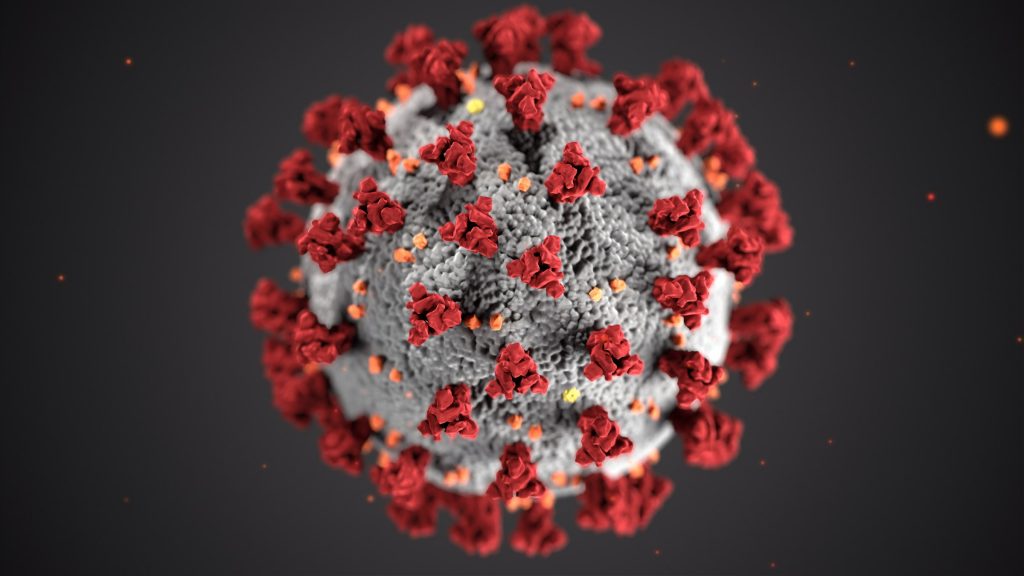The COVID-19 pandemic has considerable geopolitical impacts. It acts as a catalyst on several security and defence issues. This strategic note focusses mainly on three of them: 1) strengthening the state and its vulnerabilities in a context of de-globalisation, 2) accelerating competition between major powers, 3) as well as aggressive disinformation operations. We conclude with a series of recommendations for Canada.
Strengthening the State and its Vulnerabilities
The pandemic is helping to strengthen the traditional role of the state as protector of its people against external threats. By viewing COVID-19 as a source of insecurity and a lethal threat to its citizens, the state has had less difficulty in justifying and imposing extraordinary measures to deal with it, whether democratic or not. Its sovereign prerogatives were thus reinforced.
On the other hand, the pandemic has exacerbated the internal vulnerabilities already faced by some states. In several federal states, disputes have arisen between different levels of government over the allocation of protective equipment. This tension between vulnerability and reinforcement is particularly felt in Europe. The European Union (EU) has suffered from its weaknesses, including risky decision-making and health policies depending exclusively on the member states. On the other hand, the EU could just as easily emerge strengthened after the COVID-19 pandemic. It could prove particularly effective in putting together a comprehensive response to the pandemic. Faced with the United States disengaging from multilateralism, including from the WHO in full pandemic management, the EU would be well advised to promote multilateral mechanisms to deal with the pandemic. By proposing an integral and interstate approach to crisis management, the EU could take advantage of this opportunity to re-establish its legitimacy in a new era of international cooperation.
More generally, the whole model of neoliberal globalisation is challenged by the pandemic. In these times of health crisis, the interdependence underlying globalisation is perceived as contrary to essential national interests. Faced with this concern, we could expect a relocation of certain production sites deemed essential, as well as an increase in measures to control human travel at the borders. Health security, and biosecurity more broadly, will emerge as key sectors of national security. Like 9/11, the pandemic is treated as an existential threat and has fueled warlike rhetoric to confront it; it also legitimized a number of exceptional measures restricting individual freedoms.
Heightened Great Power Politics
The COVID-19 pandemic has not changed the nature of strategic competition between the major powers. On the contrary, it has fueled more aggressive rivalry between the blocs, by exacerbating existing tensions and by introducing new forms of competition. On the one hand, the inconsistent handling of the pandemic in the United States and its abdication from its traditional leadership role has eroded international trust in the country. On the other hand, China and Russia present themselves as having the situation under control while resorting to increased cyber and industrial espionage.
However, China’s inability to manage the epidemic on its territory and the aggressiveness of its actions risk undermining its soft power. In addition, increased Chinese influence in the Pacific could be compromised by China’s economic difficulties after COVID-19, resulting in a decrease in Chinese aid and presence in the Pacific and beyond.
America’s disengagement and the rise of China pose serious challenges for democracies. They must adopt a common approach to manage American unilateralism and the increasingly assertive rise of China, while maintaining a certain flexibility to preserve international stability.
Aggressive Disinformation Operations
Disinformation has played a significant role during the pandemic. For example, disinformation about how to protect and care for oneself poses significant health risks, as it feeds the drug trade or can lead to shortages of certain essential drugs for certain conditions. Disinformation can further undermine the stability of a society and the authorities’ efforts to fight the pandemic, in particular by discrediting government and scientific authorities. These disinformation operations have led to the emergence of many conspiracy theories on the origins of the virus, challenges to containment measures, mistrust of Western democracies, future vaccines or the process of collecting personal information and other measures linked to contact tracing. The strengthening of ties between Russia, China and Iran in this type of disinformation operation is indeed noticeable.
Finally, the pandemic could represent a major turning point for intelligence. Health risks have been considered as security issues by intelligence services for many years, without making them their priority. Intelligence services are therefore relatively ill-prepared to prevent and respond to these health risks. This is bound to change. Intelligence has the potential to provide an early warning of health risks, enabling effective and informed decision-making. By redirecting operational intelligence, valuable information can be accessed.
Recommendations for Canada
The COVID-19 pandemic has intensified American national sovereignty. Combined with heightened Sino-American competition and an increased domestic role for the CAF, this leads to a rethinking of Canada’s stance in an increasingly multipolar world. Canada must adopt a position more independent from that of the United States, by seeking to rally the international community around common positions and to defend its interests resolutely. This involves exercising diplomatic leadership alongside democratic allies who share the same interests as Canada in order to preserve the liberal international order, as well as to avoid being trapped between Washington and Beijing. In particular, Canada should increase its defence cooperation with key partners such as Australia, Japan and South Korea.
Canada also needs to reassess its force structure and national defence priorities. On the one hand, the pandemic led to a lull in CAF operations abroad, the cancellation of several exercises on the national territory and a redeployment to Canada to assist civil authorities. However, a lack of resources seems to limit the ability of the CAF to meet all domestic needs, whether related to COVID-19, floods or forest fires. The necessary prioritisation of domestic needs leads to a review of the allocation of CAF resources and operations. This must include challenging some of the assumptions that have guided Canadian defence policy to date, including the maintenance of multi-purpose forces. The budgetary austerity that will follow the COVID-19 crisis will require choices to be made; these must be strategic and well thought out. To this end, a foreign and defence policy review is needed, ideally led by a joint (House and Senate) parliamentary committee, with the input of experts, stakeholders and Canadians. A new foreign policy statement – and the defence policy that will follow from it – must seek to rally Canadians around a new consensus on Canada’s strategic orientation.
Canada has not been spared from the information struggles linked to the search for pandemic cures and vaccines and to the disinformation efforts of the major powers. An additional effort must be placed on collection and analysis of health information capacities to improve prevention and provide relevant information for decision-making. The disinformation also impacted the CAF, suggesting an increased risk of the virus spreading among military personnel. Canada must therefore rethink its defence strategy to include health and pandemic risks and review its post-COVID-19 strategic positioning.
Disinformation risks increasing the Canadian public’s distrust of political and scientific authorities by provoking movements against lockdowns, vaccination or medication related to the coronavirus, for example. To limit the effects of disinformation, the Defence Team should continue to use different social media platforms to inform Canadians about the pandemic, as well as increase its information verification capabilities or fund a third party to do it.








Comments are closed.